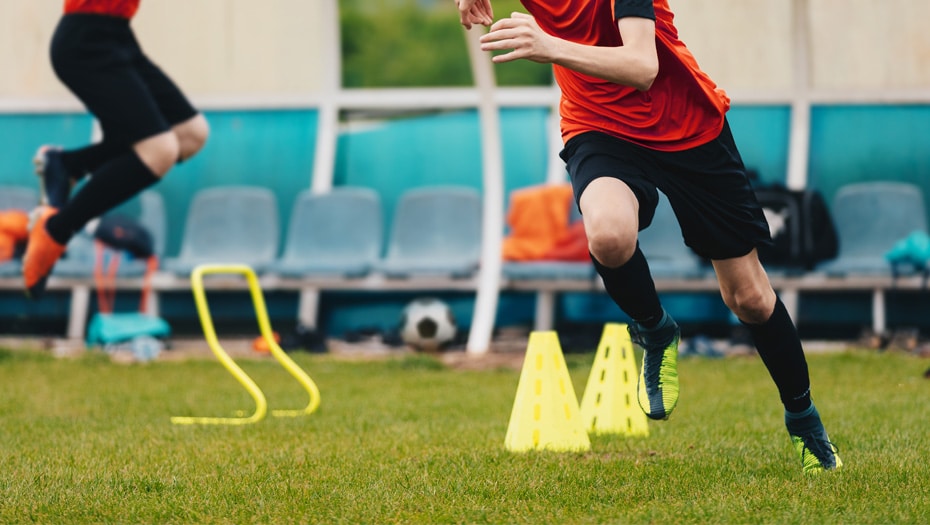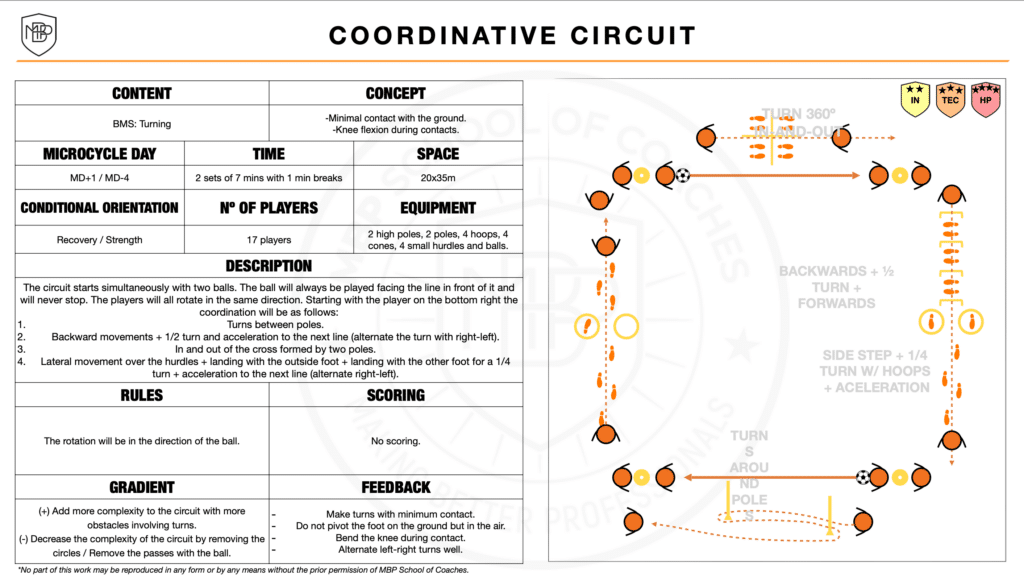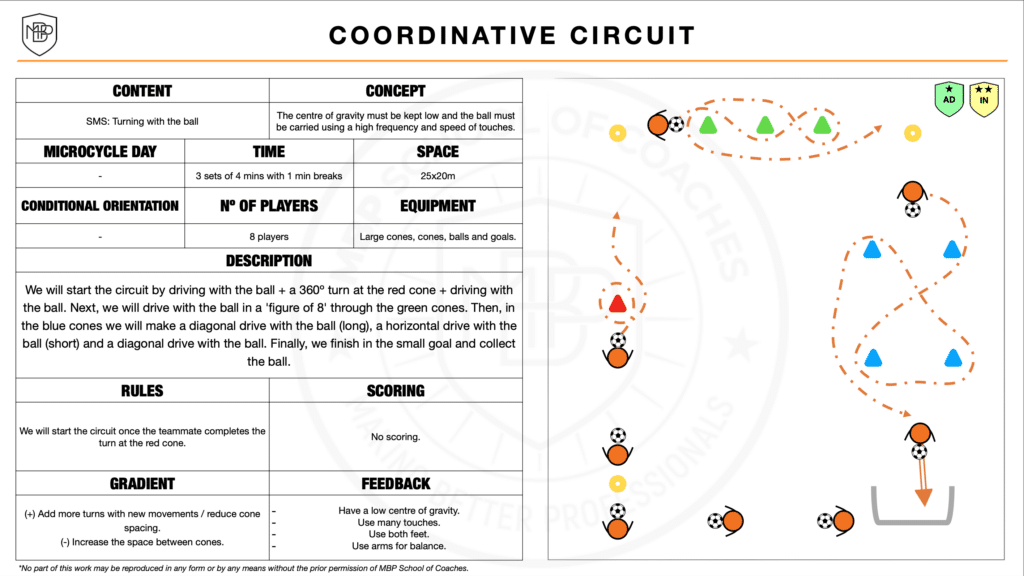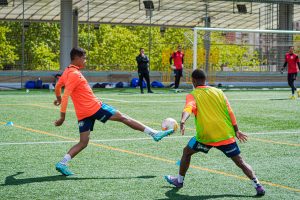Coordination is a core quality for the physical development of children at an early age and fundamental for their performance in sports such as football. To better understand the importance of this skill, in this week’s blog we will delve deeper into what coordination is and its importance in training. In addition, we will provide three didactic strategies to work on it.
What is Coordination?
Coordination is defined as the ability to control and regulate movement, allowing complex actions to be performed efficiently (Romero and Tous, 2011).
In football, a sport that takes place in a variable environment, coordination is crucial. Individuals are continuously solving motor problems in changing situations, which requires excellent coordination skills.
Coordination training involves the simultaneous development of the skeletal musculature and the central nervous system (CNS). This combined work enables athletes to quickly learn new techniques and adapt to unpredictable situations, mastering learned sporting movements even under pressure (Schreiner, 2002).
How important is coordination in training?
Coordination training not only improves the motor skills of individuals, but also facilitates the learning of the technical movement. It also favours the efficiency of movement, allows adaptation to the conditions of the environment, brings the real action closer to the desired action, stimulates creativity and enhances individuality (Massafret and Serrés, 2004).
In training football or, in other words, the development of the co-ordination structure at an early age, it is essential to be able to correctly execute everything that the player decides to do on the field.
The work and development of the co-ordination structure in youth players is an essential element to improve and enjoy this beautiful sport. Without a minimum mastery of the skills required during practice, it is very difficult to generate intrinsic motivation.
3 Didactic Strategies to improve the coordination
* Coordinative Circuit 1. Source MBP
* Coordinative Circuit 2. Source MBP
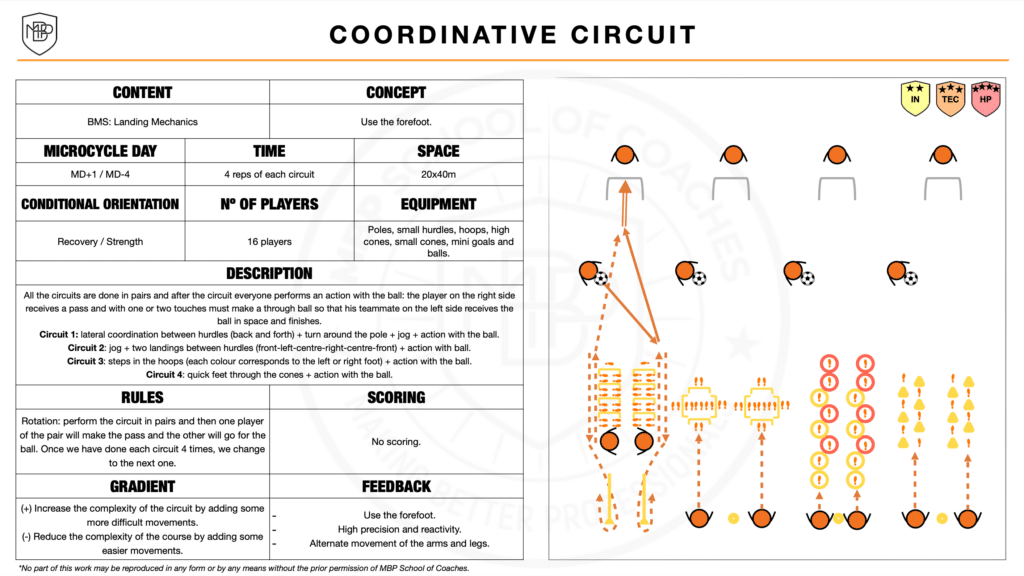
* Coordinative Circuit 3. Source MBP
Conclusion
Working on coordination in young players is vital for their all-round development as footballers. Through varied and well-structured tasks, coaches can help athletes to improve their ability to respond to changing situations, thus facilitating technical learning and performance on the pitch.

